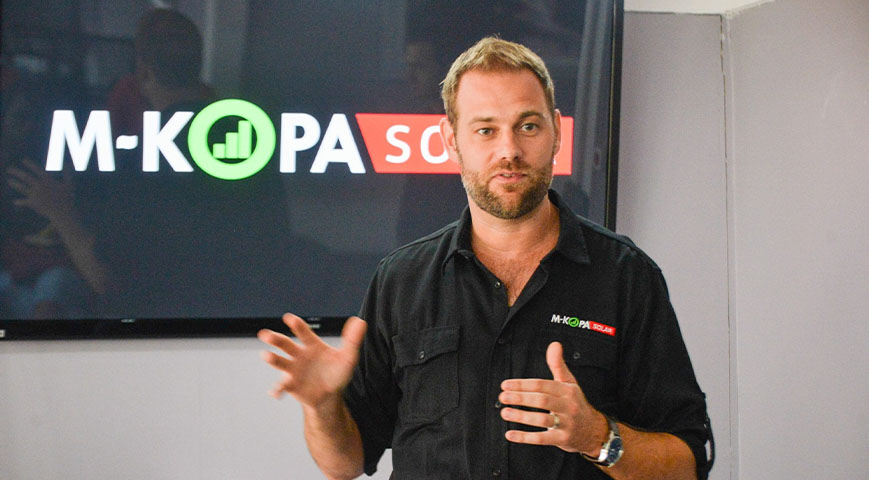Uganda's Ambitious Leap to Become World's Most Advanced Tokenized Economy

Uganda has officially entered the global digital currency landscape with the introduction of its inaugural Central Bank Digital Currency (CBDC), positioning itself among a growing number of nations exploring or implementing government-backed digital money. This significant initiative is a collaborative effort between the Global Settlement Network (GSN) and Diacente Group, the developer behind Uganda’s Karamoja Green Industrial and Special Economic Zone (GISEZ). Together, they are spearheading the launch of what is described as the world’s most advanced tokenized economy, supported by a substantial $5.5 billion in real-world infrastructure.
This development marks a pivotal moment for Uganda’s aspirations to modernize its economy through advanced blockchain technology and digital finance. For the first time, Ugandan citizens and businesses will operate within a comprehensive tokenized ecosystem designed to digitize value flows across vital sectors such as energy, mining, agriculture, logistics, and finance, aiming to foster a more inclusive and efficient economic system. The Ugandan CBDC is being piloted on GSN’s permissioned blockchain network.
A distinguishing feature of Uganda’s digital currency, in contrast to decentralized cryptocurrencies like Bitcoin and Ethereum, is its complete backing by the nation’s treasury bonds. This critical backing ensures both stability and credibility, establishing a crucial link between a government-issued digital currency and tangible state assets, thereby bridging traditional finance with the burgeoning digital economy. According to the collaborating partners, the GSN-Diacente partnership is focused on creating a seamless digital environment where assets, services, and payments can interact securely and efficiently. The network is engineered to facilitate transparent settlements, instant transactions, and programmable finance, all operating within a regulated framework that aligns with Uganda’s central banking policies. GSN characterizes this system as “an open, inclusive, and efficient economic engine built from the ground up.”
Through tokenization, which involves converting real-world assets into digital tokens on a blockchain, Uganda is capable of integrating infrastructure, trade, and community development into a shared, interoperable financial layer. The $5.5 billion Karamoja Green Industrial and Special Economic Zone (GISEZ) is fundamental to this endeavor. Conceived as one of Africa’s most ambitious development projects, the zone encompasses renewable energy production, smart logistics, manufacturing, and sophisticated digital infrastructure. Tokenizing this ecosystem means that every asset can be digitally represented and transacted, providing investors and participants with enhanced access, transparency, and liquidity.
Uganda’s entry into the CBDC arena places it among the early African adopters, following Nigeria’s eNaira and Ghana’s e-Cedi, within a global context where over 130 countries are exploring or piloting Central Bank Digital Currencies. However, the Ugandan model distinguishes itself through its direct integration with a large-scale industrial and economic development project. This innovative approach links digital finance innovation directly to tangible economic growth, moving beyond mere standalone fintech experimentation. Experts suggest this integrated model offers a more sustainable pathway towards digital inclusion by embedding the CBDC within a tokenized industrial ecosystem, thereby connecting digital finance to productive sectors, job creation, and foreign investment.
GSN’s permissioned blockchain provides an essential layer of control and compliance. Unlike public blockchains, a permissioned system allows the Central Bank and authorized financial institutions to oversee transactions, maintain monetary integrity, and prevent illicit activities. This regulatory alignment is vital for Uganda’s transition to digital money, ensuring the CBDC rollout complements rather than disrupts the existing banking framework. The inclusion of treasury-backed reserves further strengthens public confidence, differentiating Uganda from purely experimental CBDC pilots elsewhere. Diacente Group, which is leading the infrastructure development within the GISEZ, views tokenization as a cornerstone of economic transformation, with its partnership with GSN signaling a shift toward economies where digital and physical value seamlessly coexist.
In practical terms, this means Ugandan farmers could receive instant payments for their produce using the CBDC, logistics companies could track and settle cross-border shipments in real time, and investors could participate in infrastructure financing through fractionalized, blockchain-based instruments. Africa has emerged as a key region for CBDC experimentation and blockchain innovation, driven by the continent’s mobile-first financial culture. Uganda’s engagement in this space underscores its dedication to leveraging technology for inclusion and efficiency. By pairing digital currency with industrial development, Uganda signals that blockchain can serve real economic growth, not just speculative interests. The rollout is expected to attract foreign direct investment, accelerate financial digitalization, and enhance transparency across both public and private sectors.
While challenges such as public education, interoperability with existing payment systems, and data protection remain, Uganda’s pilot represents a bold stride toward the future of digital finance in Africa. Through its partnership with GSN, Uganda is positioning itself as a pioneer in merging real-world development with digital transformation. The launch of the CBDC is more than a monetary experiment; it is an integral part of a broader vision to cultivate a resilient, inclusive, and technologically advanced economy. If successful, this initiative could serve as a model for other developing economies seeking to leapfrog traditional systems and embrace a fully digitized value chain, potentially redefining Uganda’s economic trajectory and demonstrating how blockchain-driven tokenization can anchor the next generation of sustainable development in Africa.
You may also like...
Boxing Icon's Final Bell: Ricky Hatton Remembered in Emotional Tributes and Funeral

Thousands gathered in Manchester for the funeral of boxing legend Ricky Hatton, paying tribute to the 'people's champion...
Super Eagles Stumble: Lesotho Clash Exposes Deep Flaws, WC Hopes in Balance!
)
The Nigerian Super Eagles managed a tense 2-1 victory against Lesotho in their World Cup qualifier. Despite the crucial ...
Rome's MIA Market Unveils Key Insights: From Trump Tariffs to 'Roaring Banshees' Triumph!

Rome's MIA Market successfully concluded its 11th edition with record international participation, celebrating award-win...
James Gunn's Peacemaker Finale Shakes DCU: Major Twists & New Directions Revealed!

The *Peacemaker* Season 2 finale, "Full Nelson," concludes character arcs and unveils two pivotal elements for the DCU: ...
Cardi B Gets Real: Apologizes to Fans Over Album Sales Amidst Soaring Rent

Cardi B recently took to Instagram Live to express her dismay over the skyrocketing rents in New York City, particularly...
Taylor Swift's 'Life of a Showgirl' Album Shatters Modern Sales Records

Taylor Swift's "The Life of a Showgirl" has set new modern-era records for album consumption and sales in the U.S., with...
Robbie Williams Reveals 'Selfish' Album Delay and Secret Musical Plans!

Robbie Williams has candidly revealed he delayed his "Britpop" album to avoid competing with Taylor Swift, driven by his...
Taylor Swift Smashes Records with 'Life of A Showgirl' Album Sales!

Taylor Swift's latest album, "The Life Of A Showgirl," has broken multiple UK sales records, becoming her 14th No1 album...




